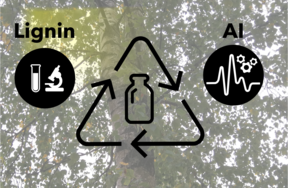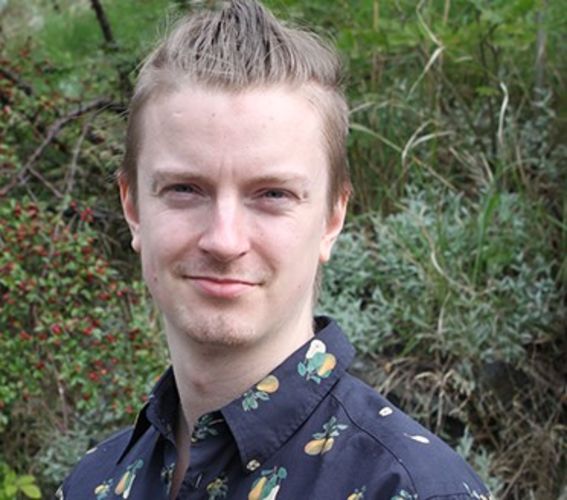AI boosts usability of paper-making waste product

In a new and exciting collaboration with the Department of Bioproducts and Biosystems, researchers in the CEST group have published a study demonstrating how artificial intelligence (AI) can boost the production of renewable biomaterials. Their publication focuses on the extraction of lignin, an organic polymer that together with cellulose makes up the cell walls of plants. As a side-product of papermaking, lignin is produced in large quantities around the world but seldom used as anything other than cheap fuel. Developing valuable materials and chemicals from lignin would consequently be a big step towards a sustainable society.
A key challenge for the valorisation of lignin is to find the right experimental extraction conditions. These include things like the temperature in the hot-water reactor where the wood is processed, the reaction time and the ratio of wood to water. These conditions not only affect the amount of lignin that can be extracted, but also the physical and chemical properties of the extracted lignin itself. Therefore, knowing how to choose the right experimental conditions is important since the more lignin can be extracted the better, and different lignin-based products may require lignin with different properties.

CEST members Joakim Löfgren and Patrick Rinke joined forces with Milica Todorovic at Turku University and Dmitry Tarasov, Taru Koitto, and Mikhail Balakshin in Aalto’s Department of Bioproducts and Biosystems to find the best extractions conditions for various lignin-based products with the help of Bayesian Optimization, an AI or machine learning method. Their AI approach constructs a computer model that, for a given combination of experimental conditions, can predict both the amount of extracted lignin and its properties. As with any other AI method, Bayesian Optimization needs data to learn from, but in contrast to more common methods such as neural networks, the data collection is guided by the algorithm itself. What this means in practice is that the computer informs the scientist working in the lab which conditions to use for the next experiment. By choosing the conditions in an intelligent way, the AI guarantees that only a small number of experiments will be necessary to create an accurate model.
The successful application of Bayesian optimization to the problem of lignin extraction suggests that AI may soon become a standard tool alongside traditional statistical tools for planning and predicting the outcomes of experiments. Löfgren and Rinke are now actively collaborating with several experimental groups at Aalto to expand their methodology to a wider set of problems in materials science.
This research paper is published in ASC Sustainable Chemistry & Engineering under
For more details contact
Joakim Löfgren

Read more news

Doc+ connects research impact with career direction
Doc+ panels have brought together wide audiences in February to discuss doctoral careers and their diversity.
Join a Unite! matchmaking event on forging new consortia for Horizon Europe applications
Calling researchers and industry partners to connect at a virtual matchmaking session designed to spark project collaborations for Horizon Europe funding. Registration deadline, 12 March.
Apply Now: Unite! Visiting Professorships at TU Graz
TU Graz, Austria, invites experienced postdoctoral researchers to apply for two fully funded visiting professorships. The deadline for expressions of interest is 20 February 2026, and the positions will begin on 1 October 2026.






